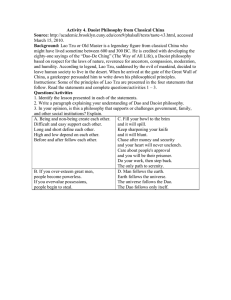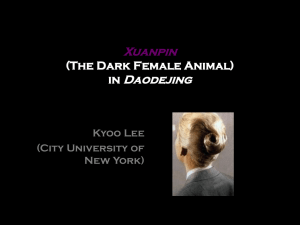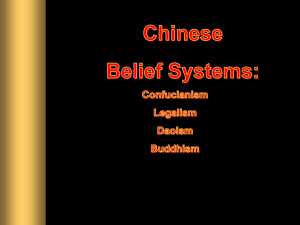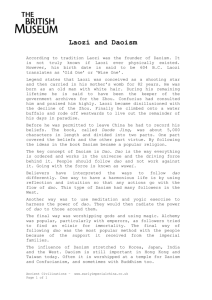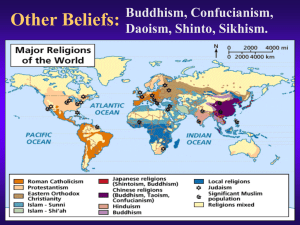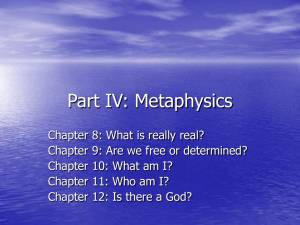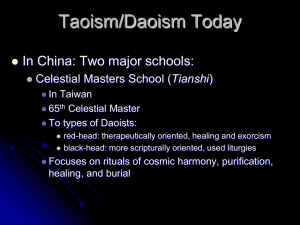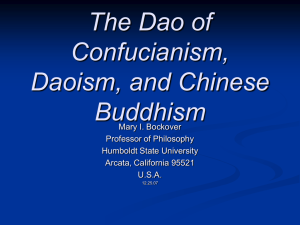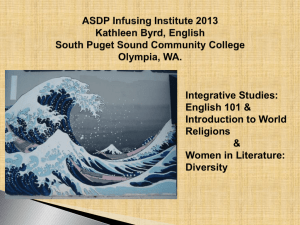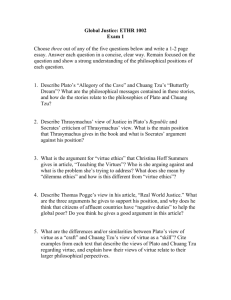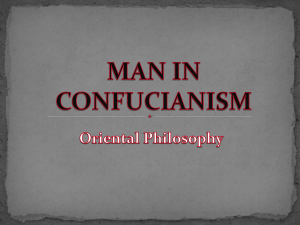Document
advertisement
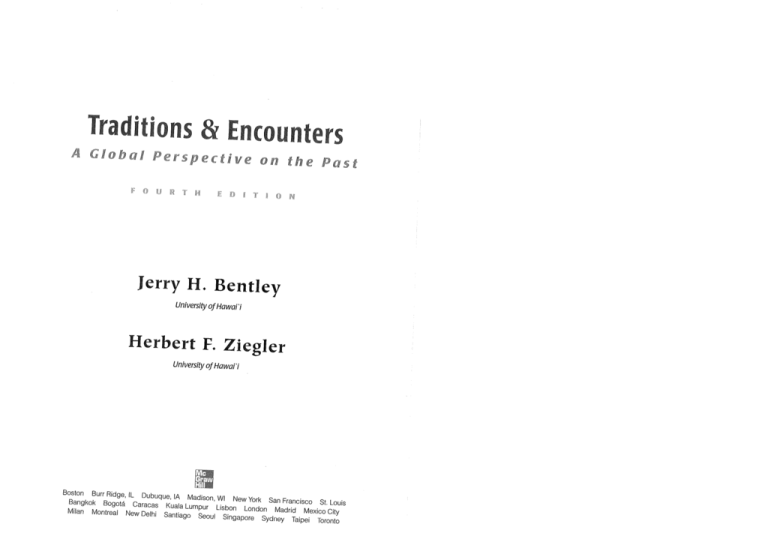
Laozi on Living in Harmony with Dao Traditions and Encounters (pg. 188) Laozi (or Lao Tzu), which means "old man" or "old sage," is said to have been the founder of Daoism. Scholars argue about whether or not he actually existed, or if he did, whether or not he wrote the Daodejing. He is said to have lived sometime between 600 and 200 BCE. It is said that when he was traveling westward, he was stopped at the border by a sentry who beseeched him to write down his wisdom so that it would not disappear from China. Whatever its source, the Daodejing (pronounced Dow Day Ching) is the most widely read Chinese text ever written. The highest goodness is like water, for water is excellent in benefitting all things, and it does not strive. It occupies the lowest place, which men abhor. And therefore it is near akin to the dao. . . . In governing men and in serving heaven, there is nothing like moderation. For only by moderation can there be an early return to the normal state of humankind. This early return is the same as a great storage of virtue. With a great storage of virtue there is nothing that may not be achieved. If there is nothing that may not be achieved, then no one will know to what extent this power reaches. And if no one knows to what extent a man's power reaches, that man is fit to be the ruler of a state. Having the secret of rule, his rule shall endure. Setting the tap-root deep, and making the spreading roots firm: this is the way to ensure long life to the tree. . . . Use uprightness in ruling a state; employ indirect methods in waging war; practice non-interference in order to win the empire. . . . The greater the number of laws and enactments, the more thieves and robbers there will be. Therefore the Sage [Laozi] says: "So long as I do nothing, the people will work out their own reformation. So long as I love calm, the people will right themselves. If only I keep from meddling, the people will grow rich. If only I am free from desire, the people will come naturally back to simplicity. . . ." There is nothing in the world more soft and weak than water, yet for attacking things that are hard and strong, there is nothing that surpasses it, nothing that can take its place. The soft overcomes the hard; the weak overcomes the strong. There is no one in the world but knows this truth, and no one who can put it into practice. CITATION: Giles, Lionel, trans. The Sayings of Lao Tzu. London: John Murray, 1905. pp. 26, 29-30, 41, 50. DIGITAL ID: 12986
